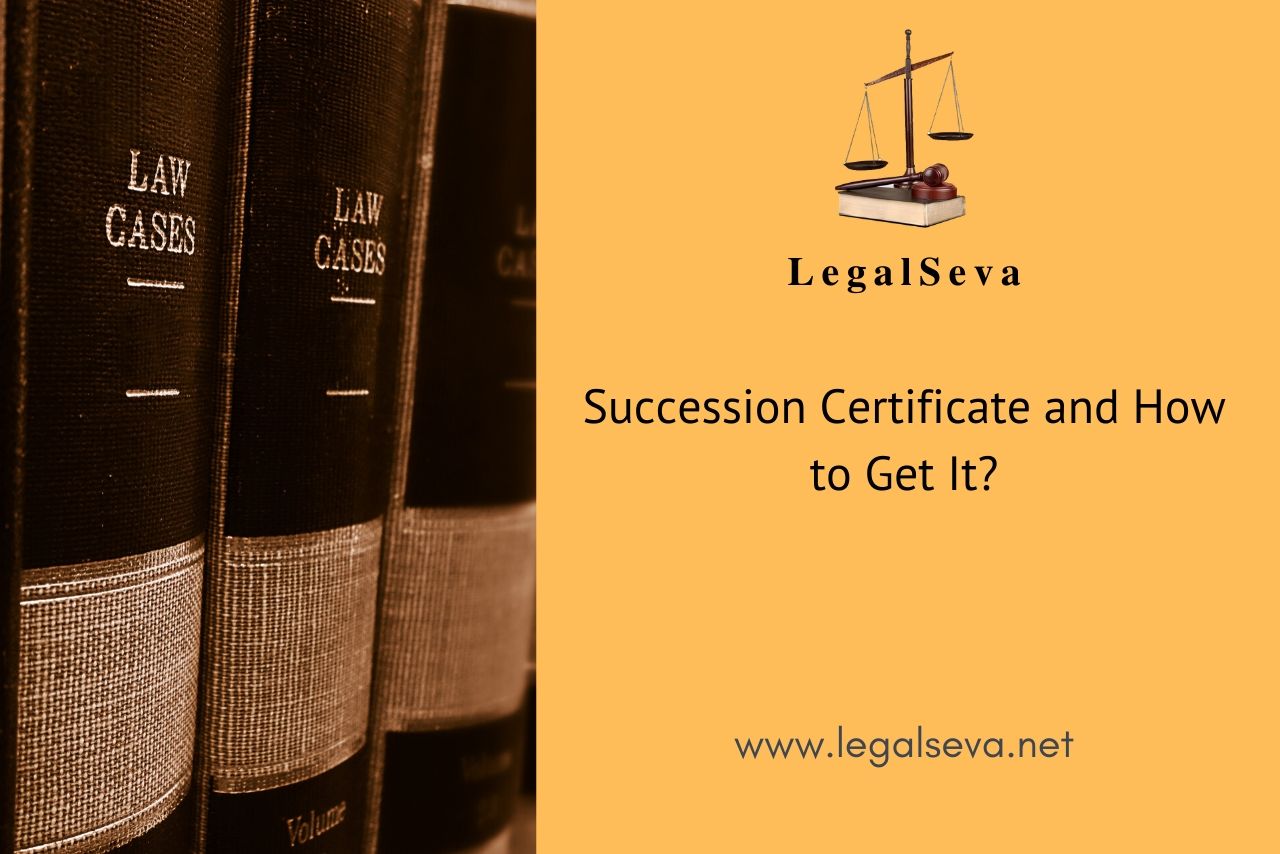Last Updated on June 15, 2024 by Satish Mishra
A Succession Certificate is a document that is granted by a civil court to the legal heirs of a deceased who dies without leaving a will. It is granted by the court to realize the debts and securities of the deceased. In the case of Muthia vs Ramnatham, it was held that the privilege of certificate gives to the grantee a right to recover the debt due to the deceased person, and payment to the grantee is a good release of the debt.”
Also Read- LEGAL HEIR CERTIFICATE IN CHANDIGARH
It establishes the authenticity of the heirs and gives them the authority to have securities and other assets transferred in their names as well as inherit debts. In the absence of a will, if there is no heir amongst the account owners and a no nomination had been prepared by the holder (s), a succession certificate is the primary certificate through which the heirs can stake a claim to the assets of a deceased relative.
Also Read- HOW TO PROBATE A WILL IN CHANDIGARH PANCHKULA MOHALI
A Succession certificate is issued by the government, usually to establish a relationship for claims relating to Insurance, pension, retirement benefits or service benefits of central and state government departments, Government undertakings etc. In legal succession cases sine qua non to obtain a succession certificate is to establish the relationship. In the matter of Paramananda Chary vs Veerappan, it was held that ”The grant of succession certificate is conclusive against the debtor. Also if another person turns out to be the heir of the deceased, it does not follow that the certificate is invalid”. All required documents are to be submit while lodging the application.
Also Read- TRANSFER OF PROPERTY THROUGH GIFT DEED
According to Section 375 of the Hindu Succession Act, the following process needs to be followed in order to obtain a succession certificate:-
- the residences of the relatives and family of the deceased must be mentioned;
- in the case of The Hindu Succession Act (Act XXX OF 1956), the names of the heirs must be mentioned in the petition;
- the right of the petitioner should be mentioned;
- either Ordinary house of the deceased, at the time of death, or the estate of the deceased should be inside the limits of the Jurisdiction of the Court concerned;
- the debts and securities as to which the succession certificate is applied for should be mentioned; vii) the absence of any impediment u/sec. 370(1) of the Hindu Succession Act or any other terms of the Act or any other laws to the privilege of succession certificate or to the legality of it in case of it was granted, must be mentioned.
Also Read- CHECKLIST FOR BUYING PROPERTY IN CHANDIGARH PANCHKULA MOHALI ZIRAKPUR DERABASSI KHARAR BADDI
This post is written by Vidit Parmar of Delhi.
If you have any subject specific questions related to Succession Certificate or Legal Heir Certificate in Chandigarh Panchkula Mohali Kharar Zirakpur Derabassi or adjoining areas, please call us at 99888-17966 for LegalSeva.
